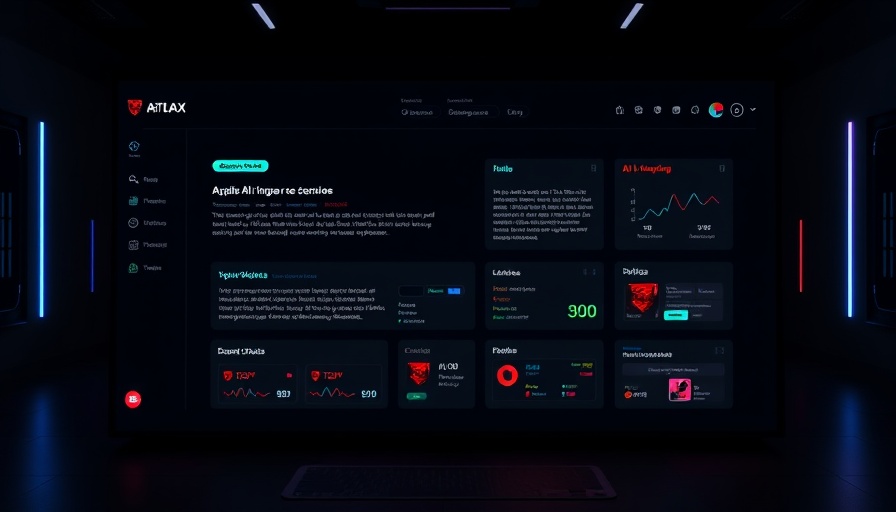
The Future of AI: Google Integrates Canvas and Veo2 into Gemini
In a tech landscape increasingly dominated by AI advancements, Google is making significant strides with its Gemini platform. Recently, they've announced exciting new features—Canvas and Veo2—that promise to enhance the user experience in novel ways. These integrations highlight Google’s commitment to staying at the forefront of AI technology and its application in everyday tasks.
What is Canvas and How Will It Transform Document Creation?
Canvas represents a major leap in document management and creation. Similar to functionalities currently available in ChatGPT and other tools, Canvas allows users to create sophisticated documents or files using code. This capability empowers creators to produce more dynamic works, broadening the scope of what AI can assist in.
Moreover, the impending introduction of a Canvas button in the Gemini Composer menu will enable users to easily manage their canvas options. This feature, initially available only on Gemini 2.0 Flash, marks a collaborative approach to AI-based content generation, making it easier for users to personalize their workflows.
Veo2 Video Generation: A Game-Changer for Content Creation
Perhaps one of the most thrilling announcements from Google is the potential for video generation through Gemini. Powered by the innovative Veo2 model, this feature aims to allow users to create videos seamlessly via the Gemini interface—a far cry from traditional methods often laden with complexity.
The advanced functionality inherent in Veo2 positions it as one of the premier video generation models today. As a result, Google's introduction of video generation directly within Gemini may set a precedent in the AI space, especially since few other platforms, such as Qwen, can offer a similar experience. Furthermore, with competitors like OpenAI planning their integrations, the competitive landscape is heating up, promising rapid innovations and advancements.
Projected Launch and the Anticipation Surrounding Gemini's Capabilities
While specific dates for the full rollout of these features remain tentative, updates to event placeholders suggest that we could see a launch between one to four weeks. Based on Google’s historical patterns, this timeline could lead to exciting developments in Gemini’s capabilities sooner rather than later. The anticipation surrounding these integrations is palpable, and many in the tech community are eager to see how they will expand AI's role in daily transactions.
The Growing Relevance of AI Integrations in Education
The impact of these advancements isn't limited to creative and casual environments; the educational sector stands to benefit significantly as well. As highlighted by initiatives like Gemini LTI™ powered by Instructure, the merging of AI with existing educational tools like Canvas LMS enhances productivity and creativity among both educators and students. Features that streamline lesson planning or personalize learning experiences can lead to a more engaging educational landscape.
Considering these integrations, the relationship between education and AI seems life-changing. The efficient management of educational tools can foster an environment conducive to engagement and learning—paving the way for the next generation of learners who are equipped to thrive in an AI-driven world.
Final Thoughts: Why You Should Keep an Eye on Google Gemini
As Google moves forward with the Canvas and Veo2 integrations into Gemini, we witness a clear trend towards enhanced interactivity and the application of AI in everyday tasks. The collective development efforts anticipate a shift in user experience that integrates creativity, productivity, and innovation in direct and exciting ways.
The emergence of AI-driven tools not only revolutionizes how we approach content creation but also sets the stage for a future where technology truly enhances our capabilities. If you’re keen on staying informed about the latest advancements in AI, this evolution is one to watch closely.
As developments roll out, it’s crucial for tech enthusiasts and practitioners alike to adapt and explore how such innovations can be applied within their own domains. Are you ready to embrace the potential that AI brings with tools like Gemini?
 Add Row
Add Row  Add
Add 




Write A Comment